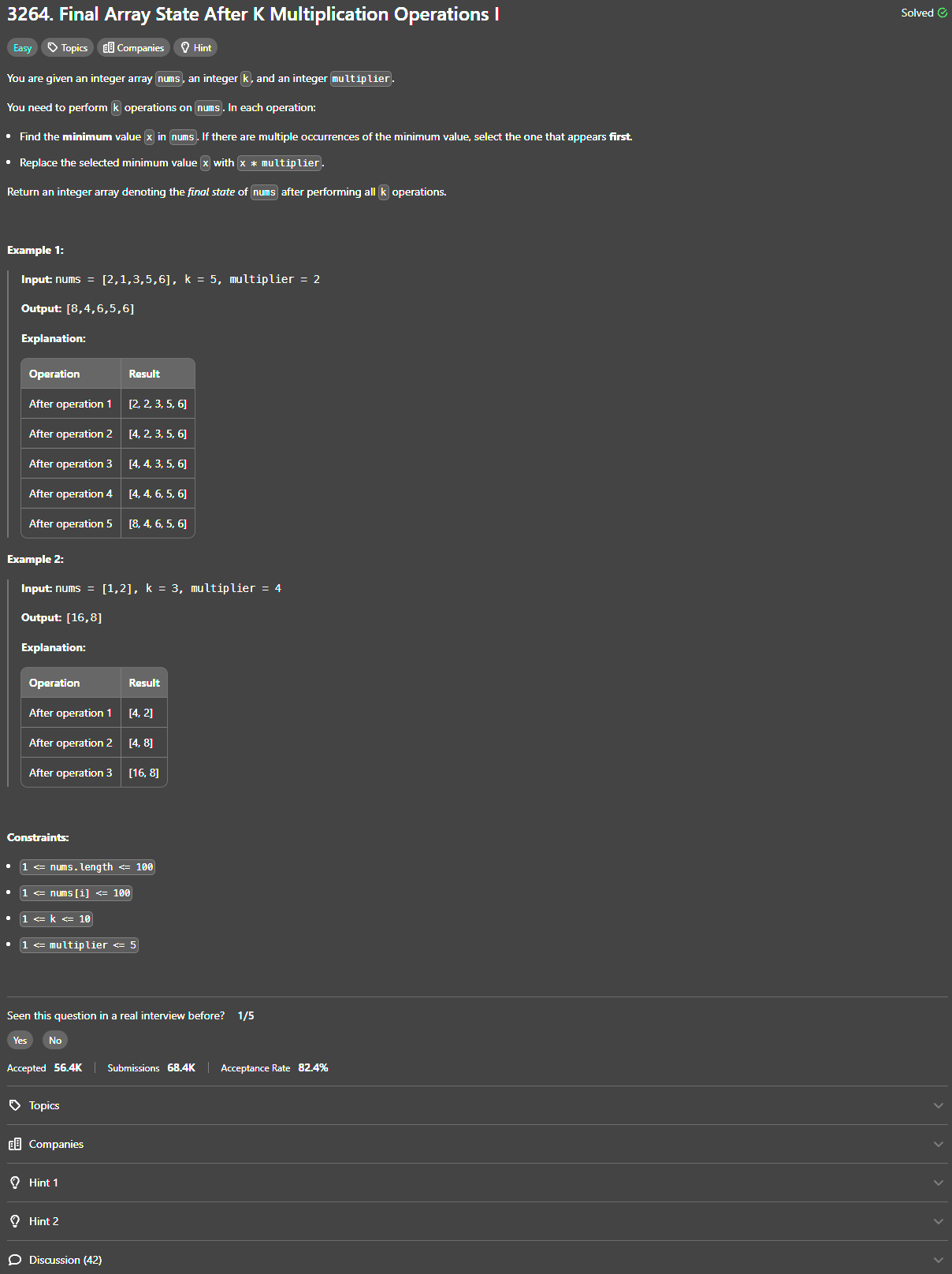Problem of The Day: Final Array State After K Multiplication Operations I
Problem Statement
 Continuous Subarrays
Continuous Subarrays
Explanation
Intuition
The intuition is to efficiently manipulate the smallest element repeatedly.
Instead of scanning the entire array each time to find the smallest element, we utilize a min-heap, which provides direct access to the smallest element in O(log n) time.
Approach
-
Initialize a Min-Heap:
Place all elements(value, index)into a min-heap. The heap keeps track of elements in ascending order, ensuring the smallest element is always at the top. -
Perform k Operations:
- Extract the smallest element from the heap.
- Multiply it by the given
multiplier. - Push the new value back into the heap.
Repeating this k times ensures that we have successively transformed the smallest values.
-
Reconstruct the Final Array: After k operations, the heap contains the transformed elements. Extract each element and place it back into the original array using the stored index.
Complexity
-
Time Complexity:
- Building the heap initially: \(O(n)\)
- Each of the k steps involves one heap pop and one heap push: \(O(\log n)\) per step.
Total: \(O(n + k \log n)\)
-
Space Complexity:
We use a heap that stores all elements: \(O(n)\)
Code
import heapq
from typing import List
class Solution:
def getFinalState(self, nums: List[int], k: int, multiplier: int) -> List[int]:
min_heap = []
# Build the min-heap from all elements
for i, num in enumerate(nums):
heapq.heappush(min_heap, [num, i])
# Perform k operations
while k > 0:
val, i = heapq.heappop(min_heap)
heapq.heappush(min_heap, [val * multiplier, i])
k -= 1
# Reconstruct the final array from heap
while min_heap:
val, i = heapq.heappop(min_heap)
nums[i] = val
return nums
Editorial
Approach 1: K Full Array Scans for Minimum Element Multiplication
class Solution:
def getFinalState(self, nums: List[int], k: int, multiplier: int):
n = len(nums)
for _ in range(k):
# Find the index of the smallest element in the array
min_index = 0
for i in range(n):
if nums[i] < nums[min_index]:
min_index = i
# Multiply the smallest element by the multiplier
nums[min_index] *= multiplier
return nums
Approach 2: Heap-Optimized K Minimum Value Multiplication
class Solution:
def getFinalState(self, nums: List[int], k: int, multiplier: int):
pq = [(val, i) for i, val in enumerate(nums)]
heapify(pq)
for _ in range(k):
_, i = heappop(pq)
nums[i] *= multiplier
heappush(pq, (nums[i], i))
return nums